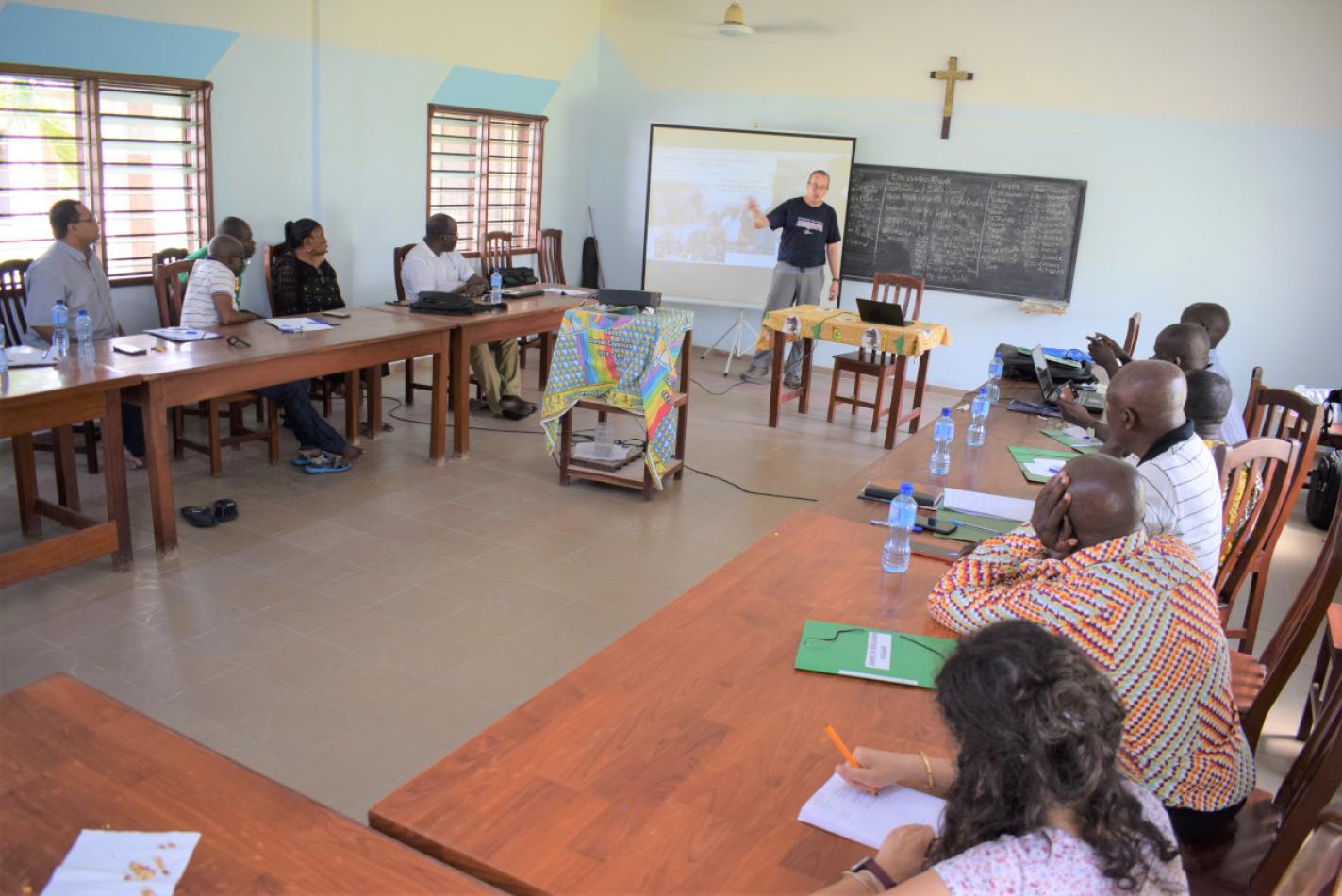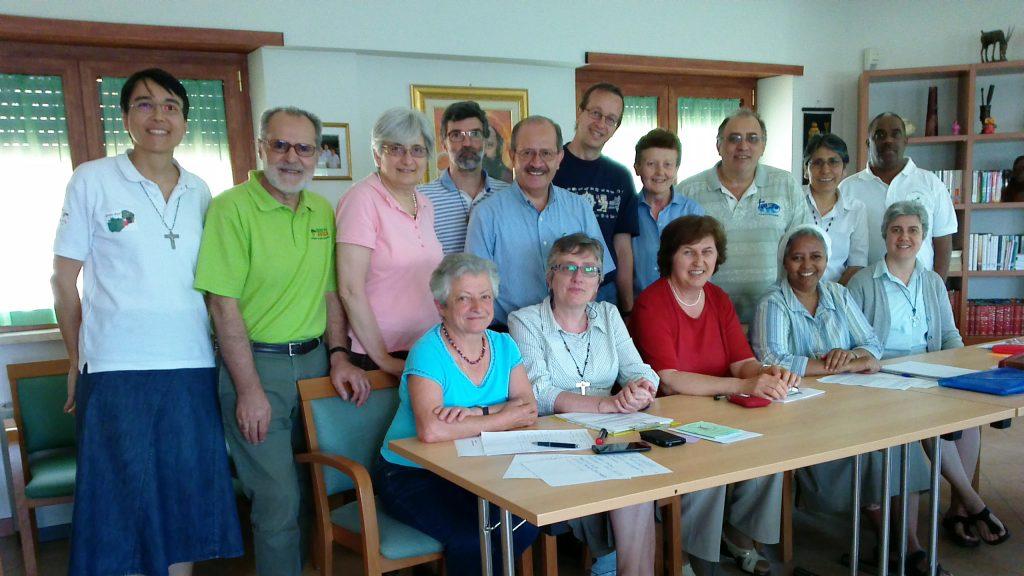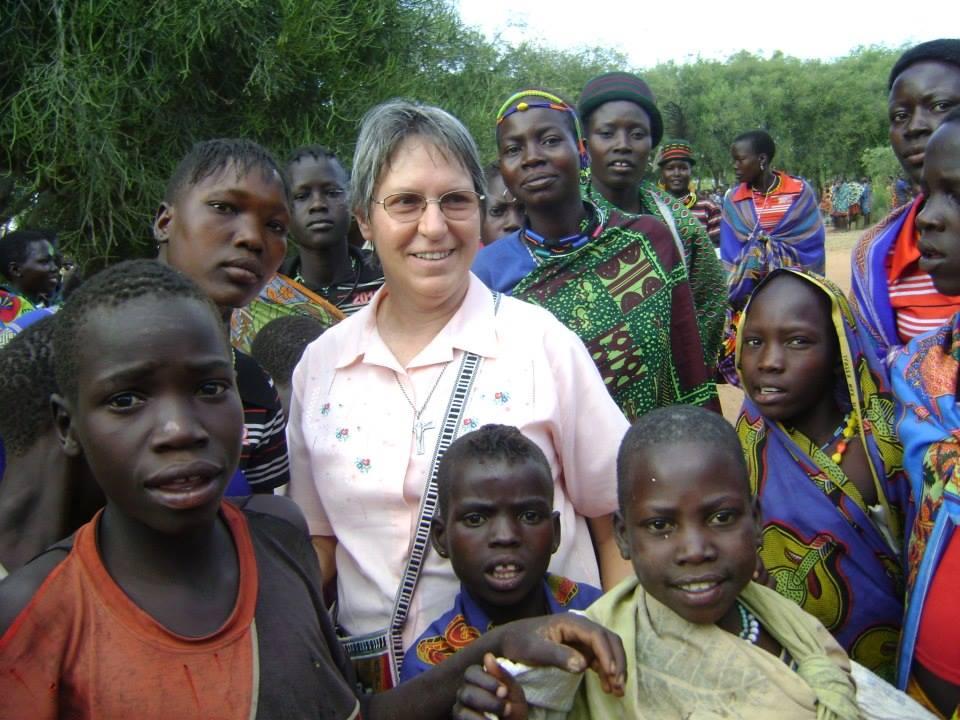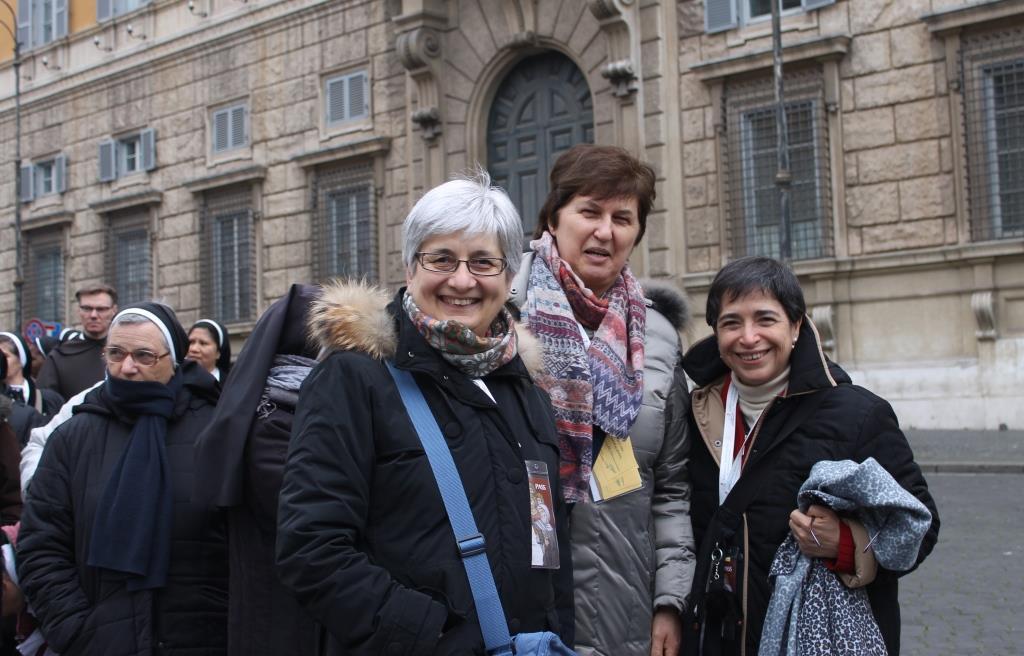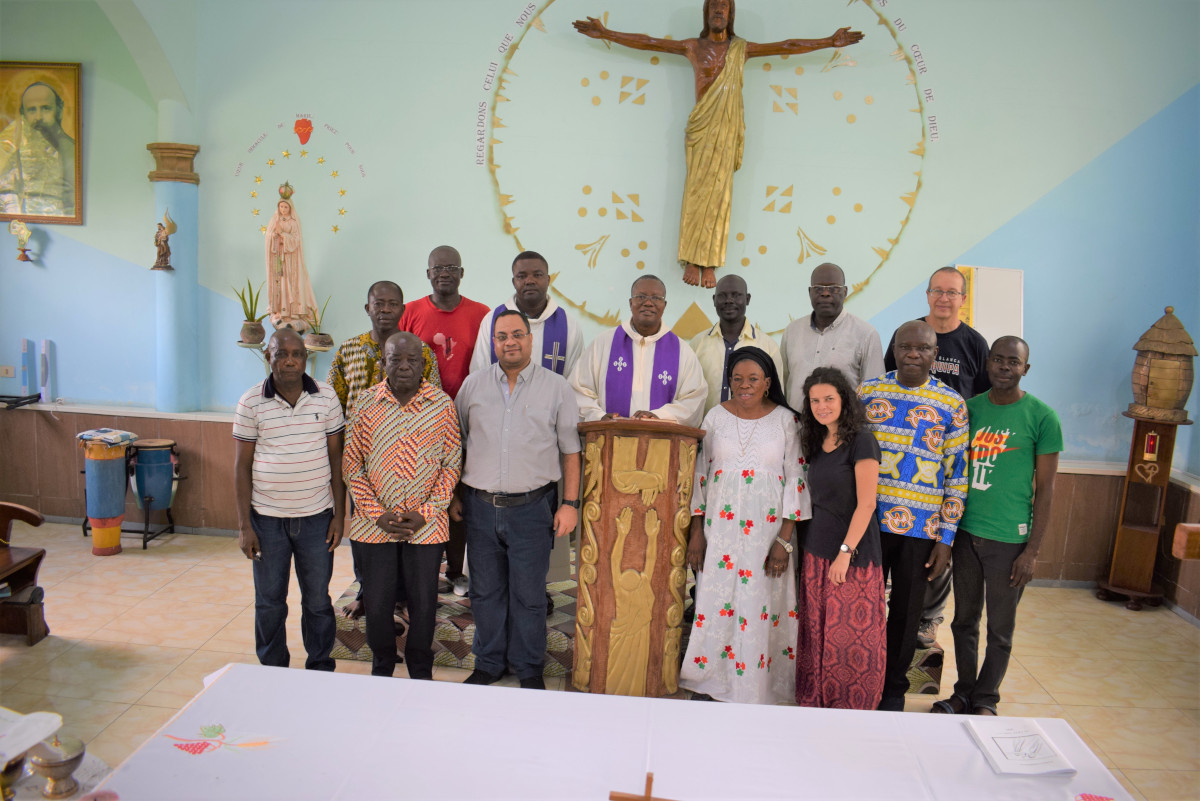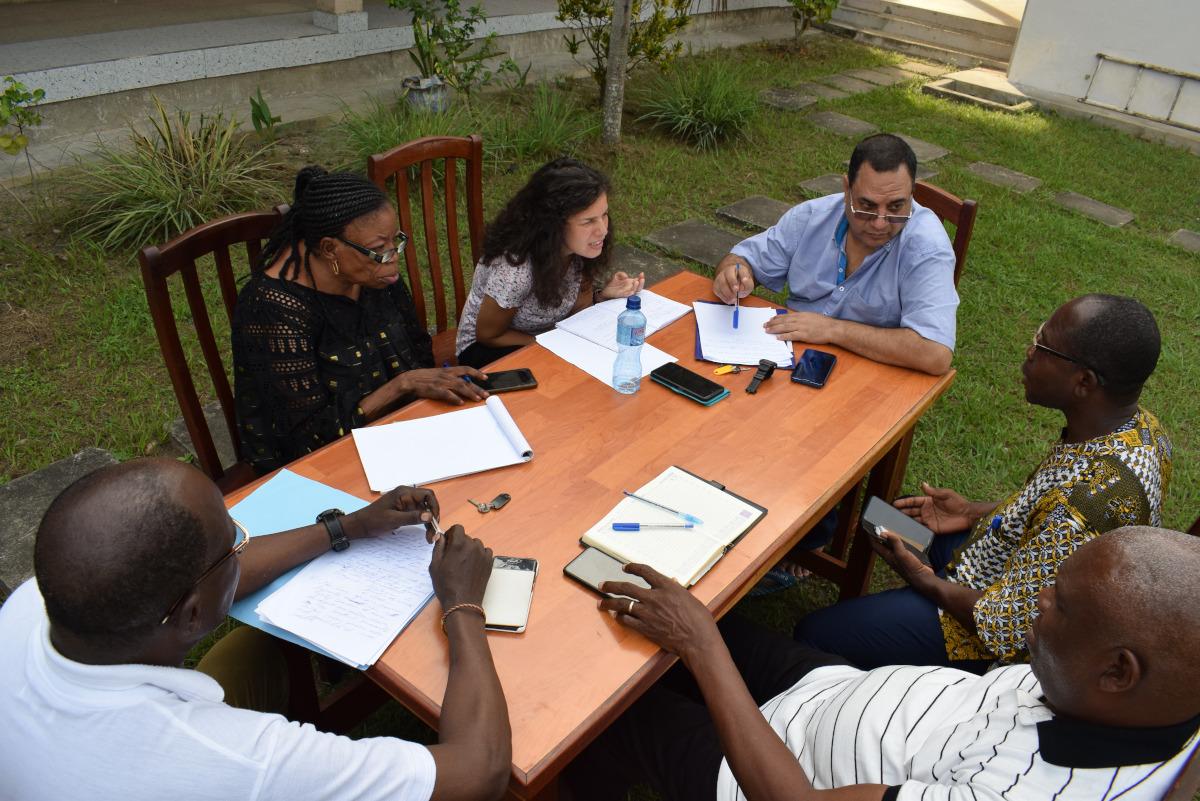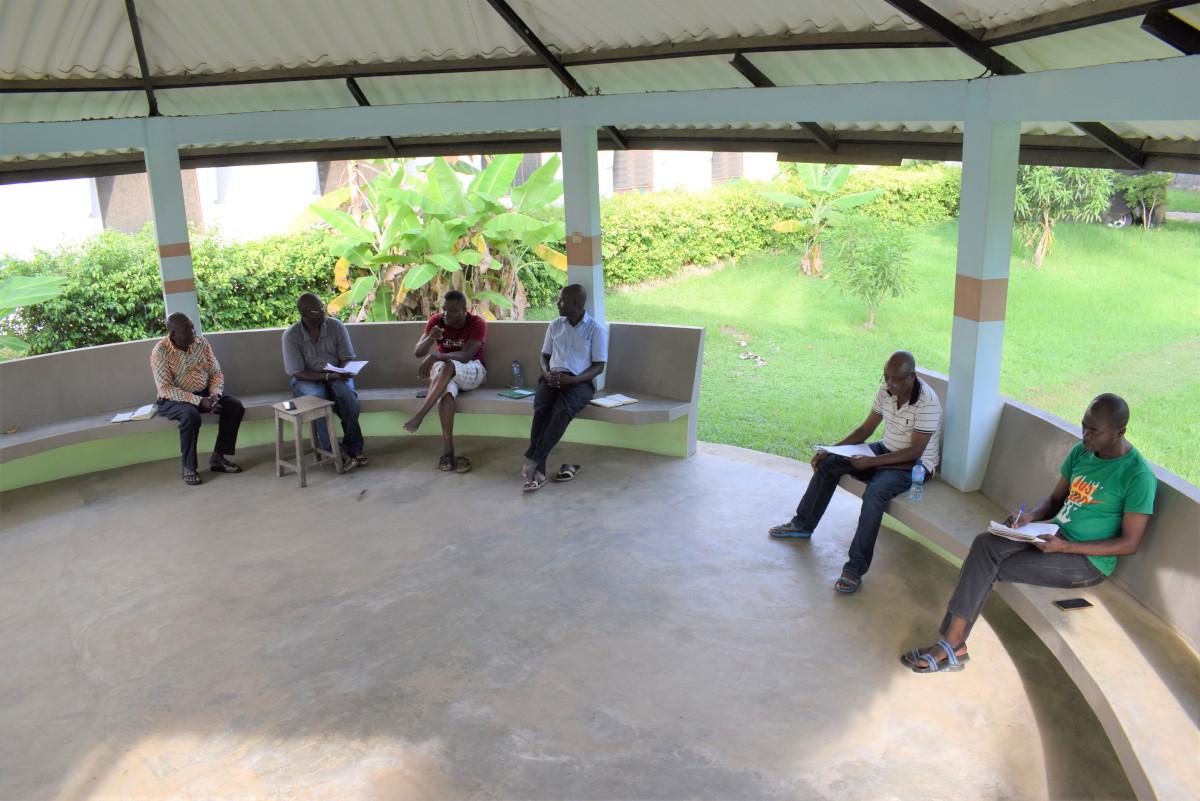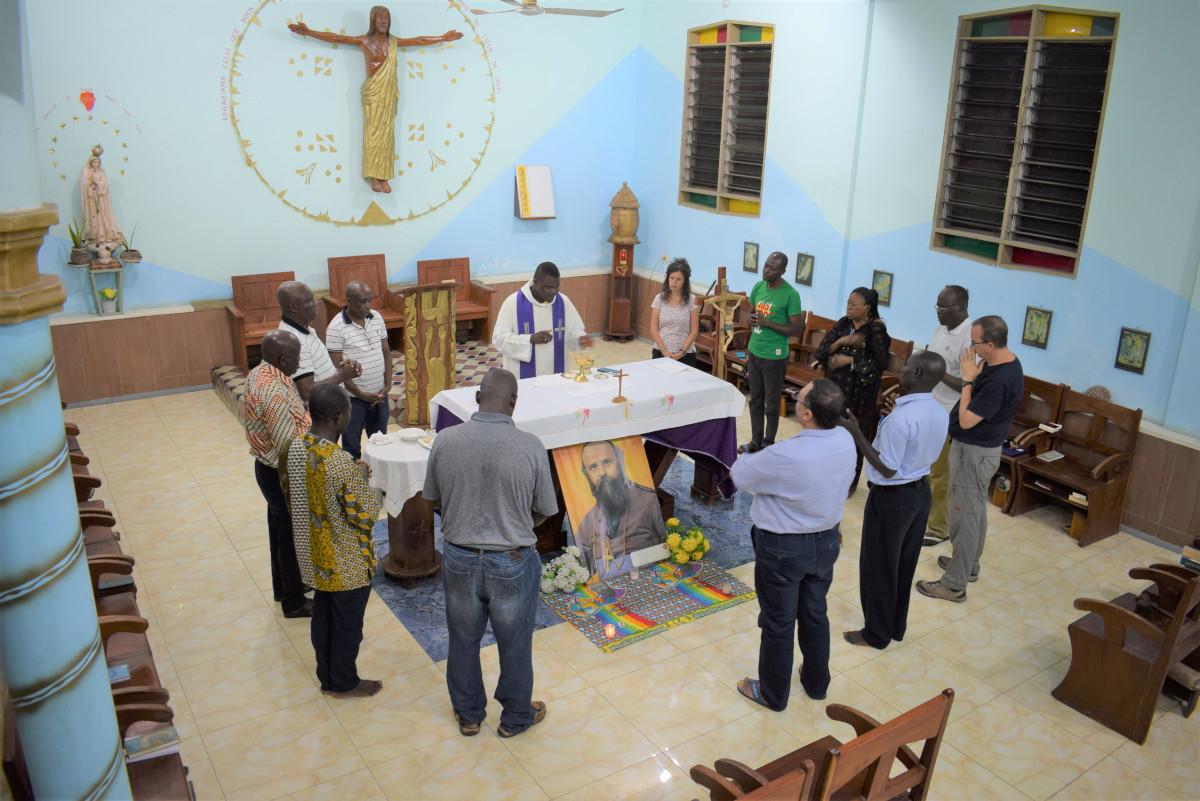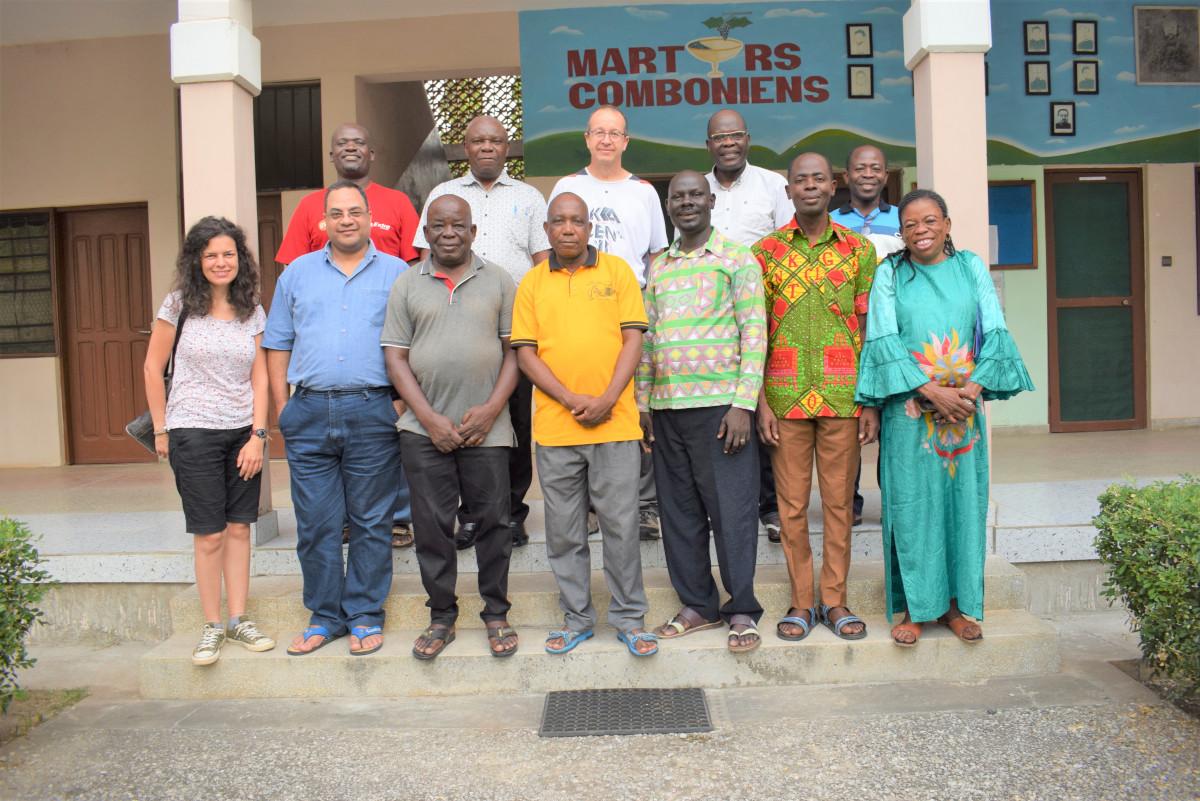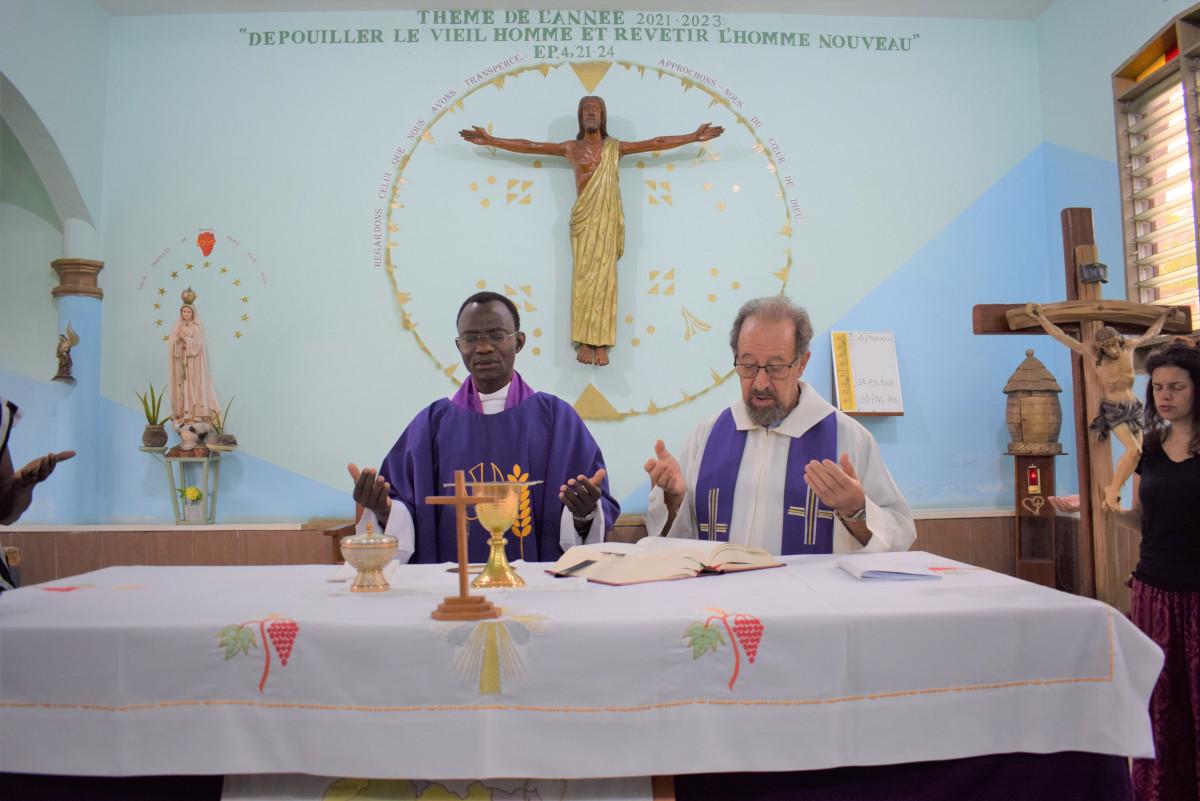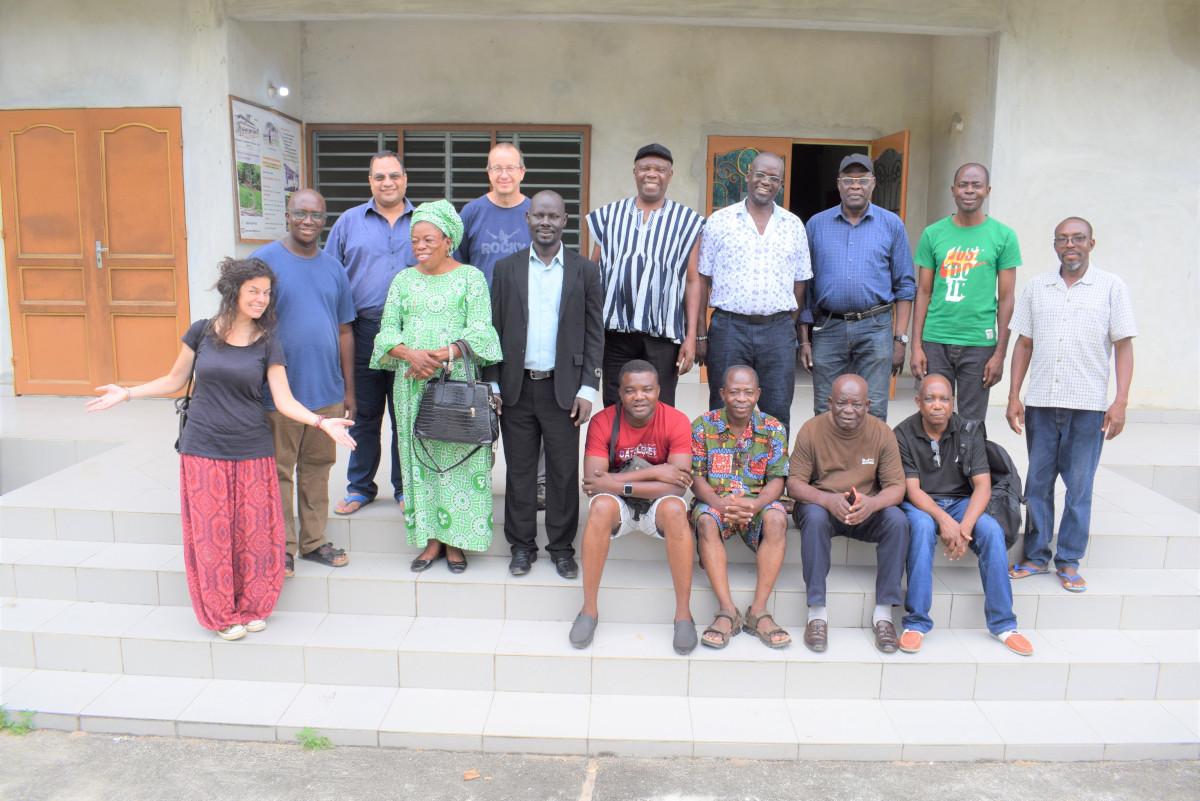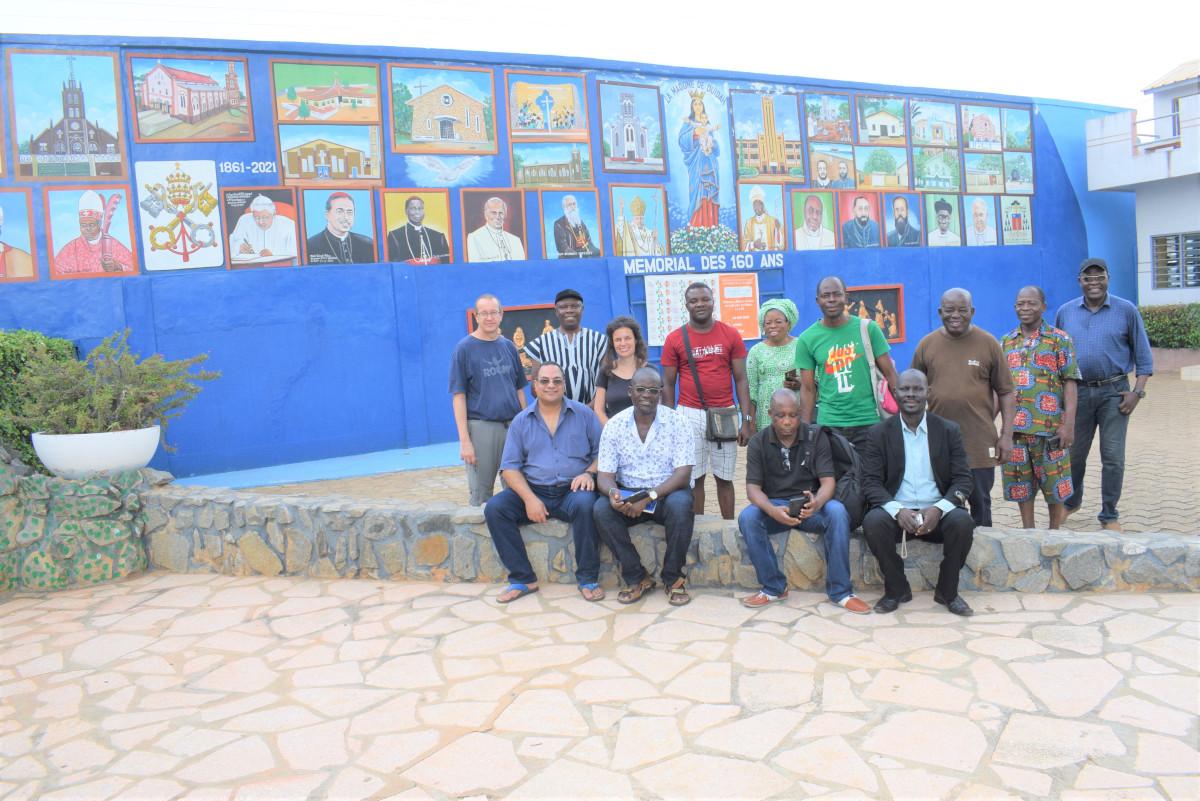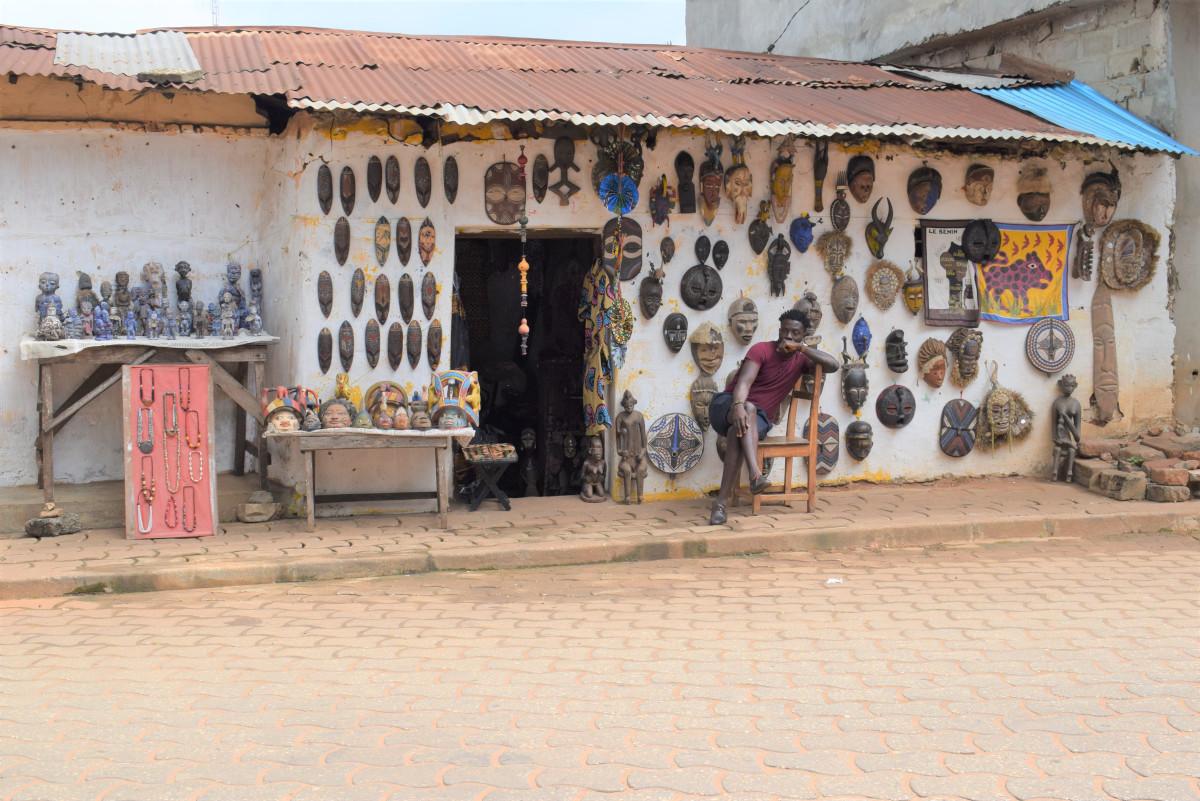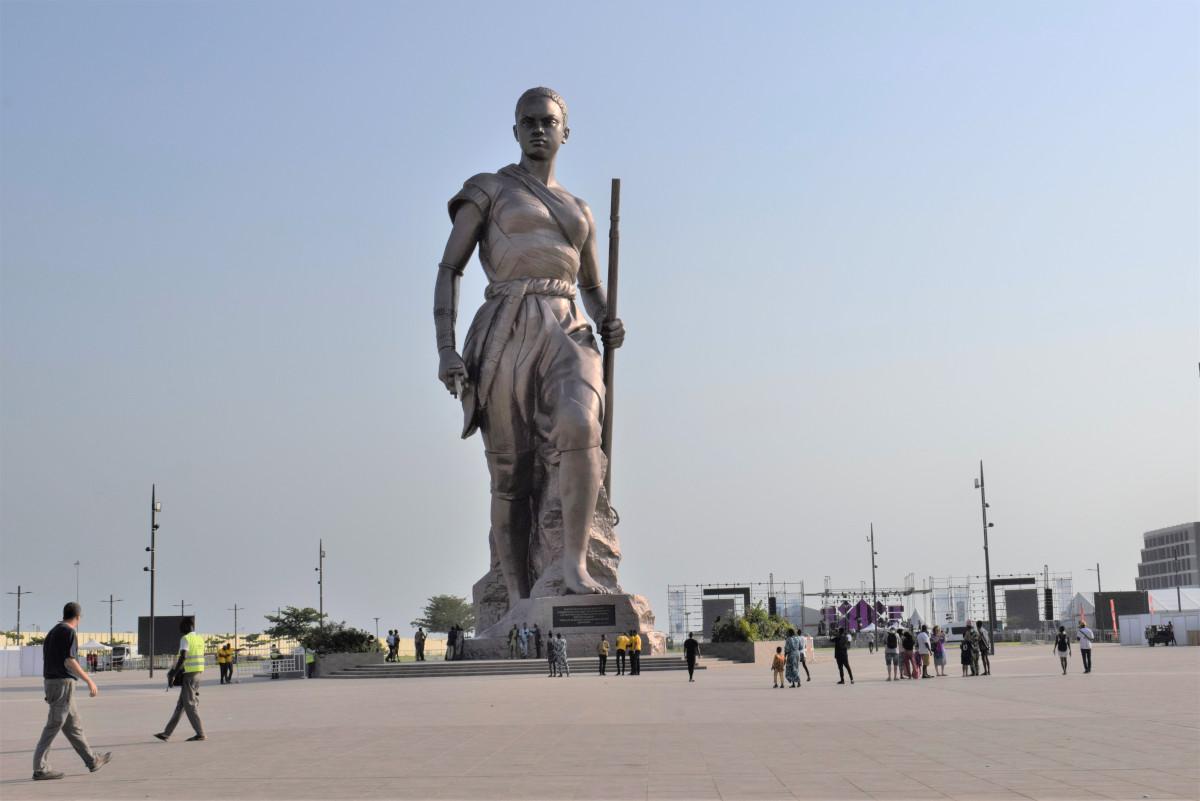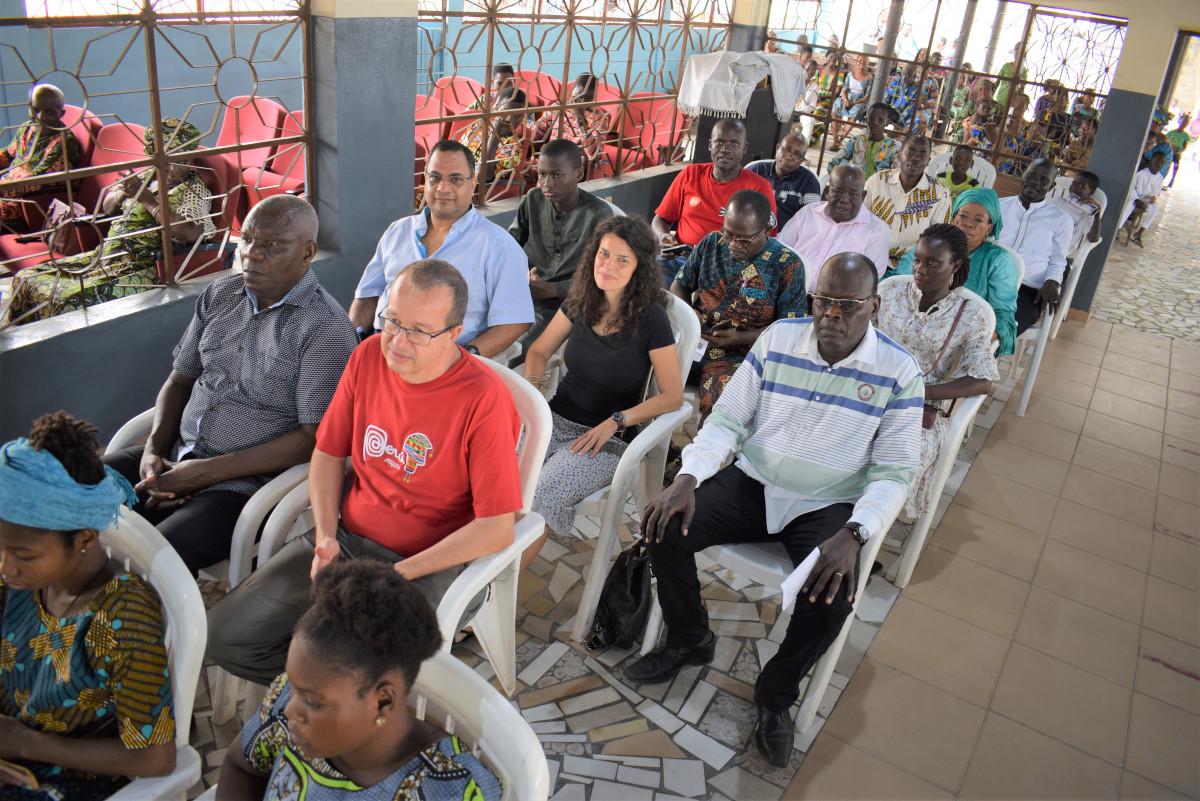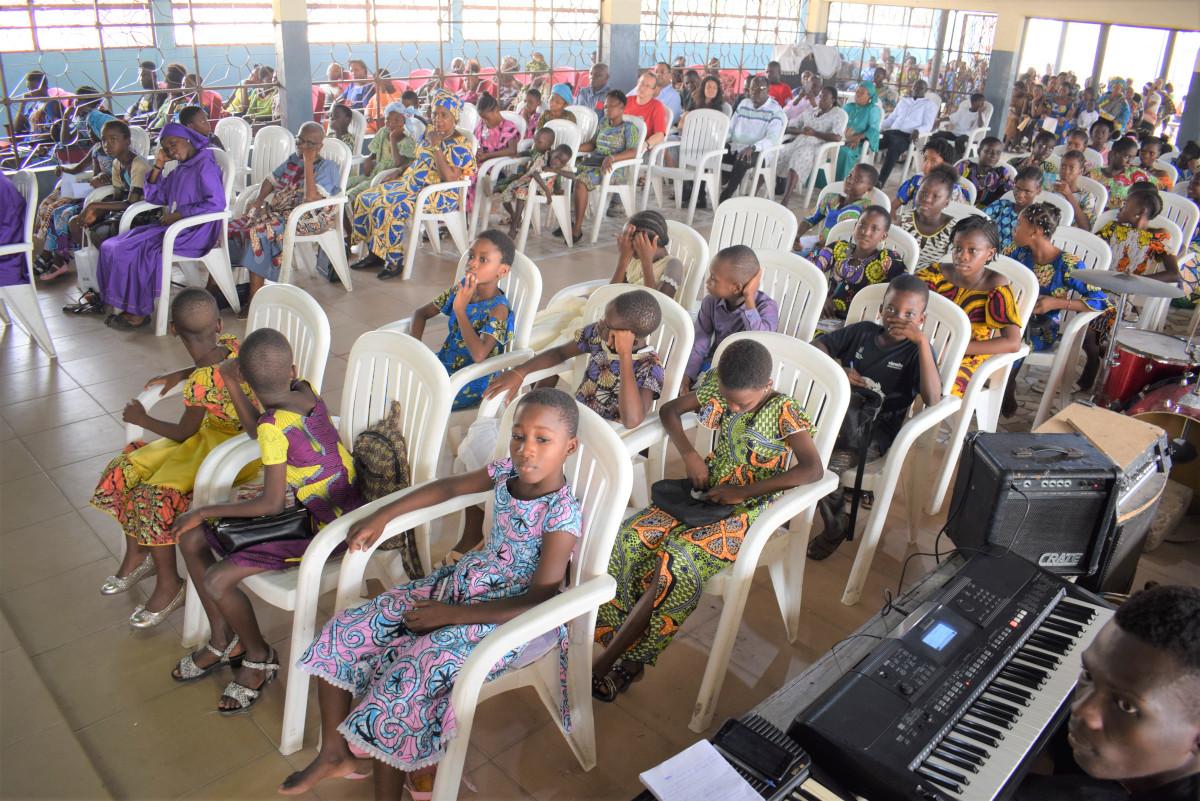Daniel Comboni
Comboni Missionaries
Institutional area
Other links
Newsletter
Wednesday, December 14, 2022
The coordinators of the Comboni Lay Missionaries (CLM) of Africa celebrated their Continental Assembly, from 3rd to 11th December 2022, at the Combonian novitiate house in Sèdégbé, Cotonou, Benin. The purpose of the meeting was to share their experiences, joys and difficulties, to reflect on their vocation and mission in the African context, to identify challenges, and to define work proposals for the coming years. The previous assembly had been held in 2017 in Anchilo, Mozambique.
The CLM participants represented the following countries in Africa: Chad (1), Togo-Ghana-Benin–TGB (4), DR Congo (2), Egypt (1), Kenya (2), Uganda (1). Of the Comboni fathers who follow them in the various circumscriptions there was only Fr. Léopold Adanle Abouke, from the TGB Province. Present from the Central Committee were Alberto de la Portilla (Spain), coordinator of the CLMs, and Fr Arlindo Pinto (Rome), contact person for the Comboni Institute. The coordinators from Mozambique and Central African Republic, unable to be present, sent their reports in writing.
Fr. Timothée Hounaké Kouassi, provincial superior of TGB Province, began the Assembly with the celebration of the Eucharist. In his homily, he reiterated the importance that every CLM must feel to “keep their gaze fixed on Christ” (Comboni), who is the centre of the mission, and to persevere in their vocation and mission, so as not to let themselves be discouraged in the face of the difficulties that are never lacking. Two other Eucharistic celebrations were presided over by the formators of the novitiate: Fr. Akpako Theotime Parfait, father master, and Fr. José Francisco de Matos Dias, superior of the community.
Fr. Léonard Ndjadi Ndjate, superior of the DR Congo Province, who was visiting the novices of his Province, presided over Mass on Tuesday, 6th December. He expressed his gratitude for the work and witness of the CLMs in his province and other African circumscriptions. He insisted that the CLMs and their coordinators are called to evangelise with the witness of life and with joy, imitating Christ the Good Shepherd, and always seeking to create communion, without dispersing anything or losing anyone, in the spirit of a true Christian and missionary family.
The first three days (3rd – 5th December) were devoted to the presentation of the reports of each group, followed by those of the African Committee and the Central Committee. Alberto de la Portilla, after offering a global vision of the reality of the CLMs at the international level, presented some concrete challenges that will have to be faced, if we are to achieve greater homogeneity of the CLMs in Africa. First of all, he stressed the importance of knowing the documents that have marked the history of CLMs: among them, the decisions taken at previous African Assemblies (Layibi/Uganda, in 2011; Kinshasa/DR Congo, in 2014; and Anchilo/Mozambique, in 2017) and General Assemblies, in particular the Rome Assembly of 2017. Moreover, he recalled that there are numerous documents, translated into different languages and available online at https://lmcomboni.org/, which designate guidelines for all CLMs, particularly with regard to vocation promotion, formation, communication, economics, and international communities.
The following days were dedicated to an in-depth study of specific topics concerning the life of the CLM Movement. For each of these themes, we began with a theoretical presentation, followed by group work. The themes were: communication and vocation promotion (6th December); mission (ad gentes and inter gentes), collaboration at the level of the Comboni Family, and the role of the family of each CLM in missionary service (7th December); formation, economic autonomy, organisation and leadership of the CLMs (8th December).
9th December was left free to visit the other two Combonian communities present in Cotonou: the Brothers’ community in Pahou, a house dedicated to training in entrepreneurship and integral ecology, animal production and organic farming, with a view to social transformation; and the community of Fidjrossé, opened in 1989, which takes care of the parish of St Francis of Assisi, and is also dedicated to vocation promotion and missionary animation.
In the second part of the day, we visited the Saint-Gall Major Seminary, in Ouihad, and the adjoining cemetery, where two Beninese Comboni confreres are buried: Fr. Jacob Sodokin and the postulant Janvier Agossou. We then went to the Basilica of the Immaculate Conception, in Ouidah, and to the ‘Temple of the Pythons’, a centre dedicated to the African religion of Vodù and local culture, located right in front of the Basilica. Finally, there was a visit to the Notre Dame de Misericorde Cathedral, the main Catholic shrine in the city of Cotonou, and to the monument known as the “Amazon”, a gigantic statue (30 metres high) depicting a young Beninese warrior, a symbol of the love, commitment and skill of the women of Benin in defending their ethnic tribe in the south of the country.
Every day, after dinner, there were moments of sharing different cultures and missionary experiences. On 5th December, Justin Nougnui, TGB’s CLM coordinator, showed some videos on Ghanaian culture; on the 6th, Linda Micheletti, an Italian laywoman, spoke about life and pastoral activities in the recently opened international community in Kacheliba, among the Pokot, in Kenya; and on the 7th, the coordinators spoke about what each group is doing at the level of Justice, Peace and Integrity of Creation (JPIC).
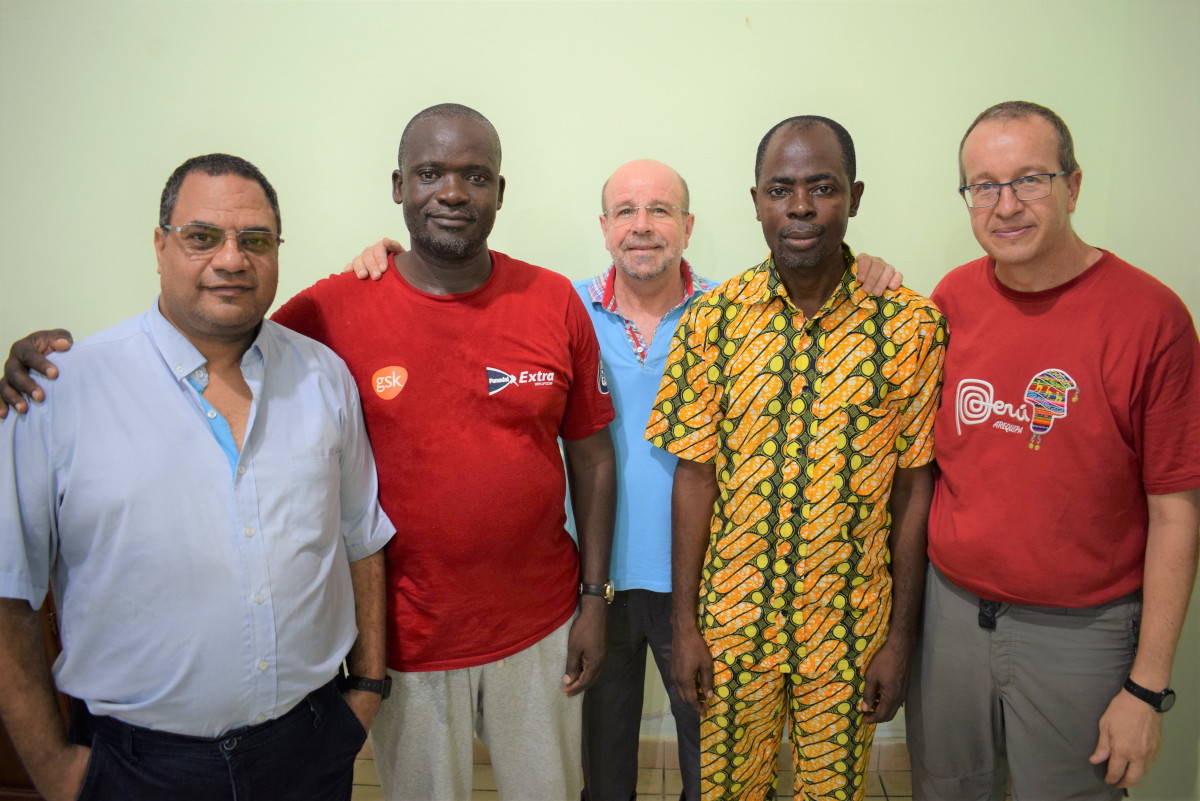
On Saturday, 10th December, the participants took up the most significant challenges that had emerged and been addressed during the Assembly, and then elaborated and approved precise proposals for the way forward until the next Assembly.
In the afternoon, the following new members were elected to the African Committee: Hani Chafik Khalil (Egypt), Martin Juma Onyango (Kenya), and Justin Nougnui (Ghana – TGB). The Mass of the day was presided over by Fr. Arlindo Pinto, CLM contact person for the Comboni Institute since 2011.
On Sunday, 11th December – International Day of Comboni Lay Missionaries –, to conclude the Assembly, the group went to St. Joan of Arc Parish, at Lobozounkpa, where they participated in the Mass of the parish community, thus offering a ‘visual’ testimony of the vocation of CLMs in Africa.
IV Assembly of the Comboni Lay Missionaries in Africa
Cotonou 2022
Final Document
The representatives of the Comboni Lay Missionaries (CLMs) of Africa – Chad, Congo, Egypt, Kenya, Togo-Ghana-Benin, Uganda –, accompanied by two members of the Central Committee, met in their fourth continental assembly from 3 to 11 December 2022 in Cotonou, Benin.
We experienced our assembly as an awakening of our mission as CLMs, a privileged time to seek and find solutions to our common problems and challenges.
The meeting was a moment of profound harmony, experienced within the surprising diversity of the members present. Great was everyone's commitment to contribute their best, referring to our common history, starting from the proposals that emerged at the Layibi Assembly in 2011 to those of the Rome Assembly in 2018.
Our participation was felt by all as a clear sign of the growth of CLMs in different countries. New countries were represented by new members. We thank God for these new vocations and for the hope they represent. We know, however, that we are still very few in number and that there is still much to be done to carry out the mission that the Lord has entrusted to us. But the desire to grow was felt in everyone.
Arriving here, we thought we would have to produce documents and resolutions to help us orient our groups, to move forward together towards our common mission, but we discovered that there is already a wealth of contents and decisions in the many documents we already have. Therefore, we encourage all our members to study them and put them into practice (starting with the conclusions decided at the Rome Assembly in 2018), so that they help and guide us towards our common mission.
We believe in the synodality of our family, which is expressed through our co-responsibility and helps us achieve greater communion. Our realities are different, but we share common goals.
At this assembly, we discussed in depth the many challenges we face as members of the CLM international movement. We want to address these challenges systematically, through clear steps and concrete proposals that will enable us to achieve all that we are called to.
We really believe that the first step is to study our international documents (especially the 2018 Rome Agreements). We therefore want to set specific times to revisit and study them within our groups (one topic at a time) to see what specific adjustments we can make to implement them in our groups.
As a family in which everyone takes care of each other, we would like to awaken our desire to know what is happening in other groups, as well as increase our willingness to learn new languages, as an indispensable means to be able to communicate and interact among us.
During our assembly we reflected a lot on our missionary commitments. We do believe that we must put our vocation at the centre of our lives, to respond faithfully to the vocation with which the Lord is calling us to missionary service in and outside our countries of origin – a service that comes from our common vocation as CLMs and we hope that we can express it with a concrete community presence in each country. However, in order to make it possible, we know that we should consider our CLM family the same way as we consider our biological family, that is, caring for it and committing ourselves together to serve the mission.
As for sending our members out of their own countries, we know that this poses a considerable economic challenge. With this in mind, we propose that each group include in its annual budget a percentage of its income to be set aside to support a member working in a mission abroad. The sending group should also set aside a certain amount of money to support a member returning from the mission abroad, to help him/her with food and accommodation for a certain period, thus facilitating his/her reintegration back home.
During this week, we have been reflecting on the need for all of us, as members of the CLM, to live a clear and correct sacramental life, and how the traditional marriage of some ethnic groups – as well as other similar issues – can easily interfere with this important aspect of our witness. In this sense, we feel it is our duty to encourage all our groups to reflect on this important point in our Christian life, and to try to help our members in this regard. We, as lay Christians committed to the Church, should contribute to this important process of inculturation of the Gospel in our own cultures.
We have also noted that there are cases where only one member of a married couple is CLM. This is an important and delicate aspect that we should take into consideration during the discernment process. We should therefore invite the couple themselves to carry out a vocational discernment together, to see whether they both share the vocation of CLM, or only one of them, and to study how this vocation can be lived out within their family.
Regarding formation (training), we have discovered the surprising richness contained in the new CLM International Guide. We therefore encourage all our groups to review and update their training plans according to it.
Another happy discovery was the International CLM Communication Plan. Enthusiastically adopting this guide, we propose that each group draw up its own communication plan (every one or two years), clearly defining specific tasks, so that we can have a systematic approach to our communication. We also decided to create a Communication Commission in Africa, composed of the communication secretaries of our national groups.
One of the most challenging topics we discussed was the issue of financial autonomy. In this respect, we want to improve our formation-training – from being able to respond to the most immediate needs to being able to plan future development projects correctly and thoroughly – so that we have a common accountability system and are able to properly present development projects and then follow their implementation.
We certainly did not forget to also discuss our commitment at the international level. Therefore, we invite each group to decide what percentage of its income – and how often – it is willing to send as a contribution to the CLM International Common Fund, managed by the Central Committee.
Having rediscovered the breadth and responsibility of our vocation as CLMs, and aware of the large number of commitments and needs we have to cover, we suggest a serious reflection on how to organise our groups, especially in terms of time to devote to our meetings, in order to seek and find ways to fulfil all the commitments we have as CLMs.
We say an enthusiastic ‘YES’ to the requests that the Lord makes to us as African CLMs, members of the CLM International Movement, and in full communion with the entire Comboni Family and the whole Church.
Cotonou, December 11th 2022.
Third Sunday of Advent (“Gaudete” Sunday) and CLM Day
The participants:
01. Dieudonné Likambo Kwadje (DR. Congo)
02. Gerard Kambouj (RD. Congo)
03. Martin Juma Onyango (Kenya)
04. Linda Micheletti (Kenya)
05. Hani Chafik Khalil (Egypt)
06. Anicetus Adaku (Uganda)
07. Justin Nougnui (Ghana - TGB)
08. Frank Amenyo,(Ghana - TGB)
09. Christian Wotormenyo (Ghana - TGB)
10. Benjamin Amekon (Ghana - TGB)
11. Madjita Haroun (Chad)
12. Alberto de la Portilla (Spain - Central Committee)
13. Fr. Léopold Adanle Abouke (Ghana - TGB)
14. Fr. Arlindo Ferreira Pinto (Rome - Central Committee)

